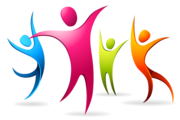
Art emphasizes the mind-body connection. He explains that the vast majority of back pain is muscular. Stress sends signals to muscles to tighten up and become stiff. Over prolonged periods of time, such stiffness becomes permanent, resulting in pain. Acute pain is best handled by short term measures like rest, massages and anti-inflammatories. However, chronic pain can be managed only by long term commitment to daily stretching exercises and meditation-style deep relaxation exercises.
Art's personal story is interesting. He was an army doctor who started having sciatica and back pain. Several months later, his pain had become quite severe. He had to crawl to go to the restroom! He took a break for several months, visited a yoga ashram in India, healed completely, returned to USA and started teaching his patients how to successfully recover from back pain.
To understand Art's explanation that 'chronic stress → tight muscles → back pain', it may be helpful to learn about two more concepts. First, when we feel threatened, we display the Fight or Flight Response, a term coined around 1915 by Walter Cannon in a book titled 'Bodily Changes in Pain, Hunger, Fear and Rage'. In sharp contrast, we also display the Relaxation Response, a term coined by Herbert Benson in 1975. The Relaxation Response can be learnt via techniques like meditation and relaxation exercises.
If you like Art Brownstein's book, you may also want to look into Healing Back Pain: The Mind Body Connection (240 pages, 2010) by John Sarno who emphasizes that blocked emotions are the underlying cause of back pain. Sarno recommends that we heal ourselves emotionally in order to find relief from back pain.

This book gave me insights into the power of the human mind in healing the body. The book also helped me understand the interplay among medicine, placebos and doctor-patient relationships.
Norman Cousins was a journalist writing medical articles. At one point, he inhaled some fumes coming out of an airplane. He fell grievously sick. Soon, he was on a daily regimen of serious painkillers. Norman analyzed his medical reports. Being familiar with medical literature, he conjectured that eating oranges and reducing stress by laughing a lot will help him recover. His doctor was supportive of his plan and his wife helped him see a series of funny videos daily. Norman discovered that ten minutes of a 'belly laugh' gave him two hours of pain free sleep! In a few months, Norman recovered!
Post recovery, Norman had an insightful conversation with a famous medical doctor at John Hopkins University, telling him how oranges and laughter had helped him recover. Norman suggested that perhaps research should be conducted into the role of Vitamin C in alleviating symptoms like his. Instead, the doctor opined that Norman would have cured himself even if he believed that apples were going to help him, not oranges! In other words, it wasn't apples vs oranges, it was Norman's belief that he will get cured! The mind-body effect. This conversation prompted Norman Cousins to look deeper into the practice of medicine, how placebos work and how doctor-patient relationships influence the outcomes of medical interventions.
A 10-minute interview with Norman Cousins in which he recounts the illness described in 'Anatomy of an Illness'.

Andrew Weil is a doctor famous for advocating alternative medicine. This book was illuminating for me. Chapter after chapter, there were amazing stories of people recovering from ailments using non-conventional approaches.

Over 10% Americans take anti-depressants. Over 10 million children in USA have been prescribed psychiatric drugs like Ritalin and Concerta. Peter Breggin explains the trap of psychiatric drugs: how these do more harm than good, how addictive they are, why they are dangerous and what happens when you attempt to stop taking them. Other books by Peter Breggin (amazon).

'Overdiagnosed' shows the pitfalls of early diagnosis / more diagnosis. It contends that more early / more diagnosis results in more medical intervention, which actually makes healthy people sick and depressed. The book has plenty of citations and data. It will appeal to those keen to interpret and dissect statistical claims made to justify early / more diagnosis and treatment.

This book explains multiple strategies for preventing cancer. The strategies are very simple! The kind of things that our grand moms and moms routinely told us when we were growing up in India: stay away from meat, stay away from cigarettes, do some exercise, eat lots of fruits and vegetables, and so on. This book told me that cancer prevention was about following a simple, healthy lifestyle.


